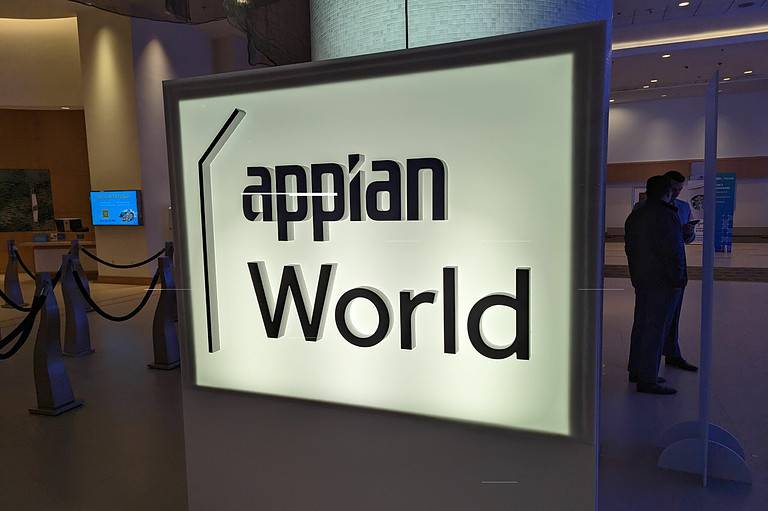During Appian World, Appian announced that it is also getting involved in AI. Co-founder and CEO of Appian considers this one of the main battlefields for the coming years. However, Appian is taking a different approach than many others. Today, the company is unveiling its first so-called AI Skills.
When we talk about AI from OpenAI, for example, we often talk about public AI. That is, organizations send their data to a large vendor’s environment and get certain results in return. That kind of AI “is not made for you, but for them,” Calkins says. That’s not going to work in the long run.
Private AI has the future
The alternative Appian wants to offer to the above public version of AI is private AI. “With this, each organization has its own AI, trains it on its own data and deploys it within its own environment,” Calkins summarizes. He draws a parallel with how many organizations create their own custom applications. That will also be the future for AI.
As a first step and also to give an idea of what Appian’s vision is when it comes to private AI, the company today also immediately announces three specific skills. These AI Skills, as Appian has called them, are basically algorithms that Appian has developed for a specific purpose. Organizations can deploy them and apply them to their own data. Training and eventually running the Skills takes place within one’s own environment on the Appian cloud.
These are the first three AI Skills:
- Email Classification: Allows you to automatically classify and interpret emails. The idea is that organizations can use this to automate email communication. Part of it is that you divide emails into different types, which should then be handled in a specific way by the automation platform. Think of customer emails, RFP emails, emails from third party suppliers and so on. After training this skill within the Appian AI Skill Designer, you can link it to your mail server and it will start working. It also has a feedback loop, so should something go wrong, the Skill will take that into account in its next action (and hopefully not make that mistake again).
- Document Classification: With this Skill, it is possible to classify documents based on what they contain. This streamlines how documents move through an organization. To some extent, you could think of it as part of document management.
- Document Extraction: Using this Skill, you can extract information from various document types. Its purpose is to reduce manual data entry. In addition, it should improve accuracy. Employees can deal with more important matters.
The private AI Skills above are very specific. You basically don’t need data from outside the organization to train them. For example, you only need ten emails per email type to do some fundamental training on the Email Classification Skill. Obviously, more data makes the Skill perform better, so it makes sense to use more.
You can create as many AI Skills as you want and as many variations of them as you want. Appian actually does that itself. Email Classification and Document Classification are largely the same algorithms, but each with its own use case.
Private AI is going to add a new dimension to the battlefield of AI. It may not be as hugely exciting as LLMs and what you can do with them. But within the business world, you generally don’t want something exciting either. Above all, it has to be functional and solve a problem. So that’s the focus of the AI Skills you can build with the Appian AI Skill Designer. In any case, Calkins is confident that Appian is headed in the right direction. “Private AI is going to win,” is his firm belief.
TIP: Appian’s Data Fabric gets more value out of data, wherever it resides
